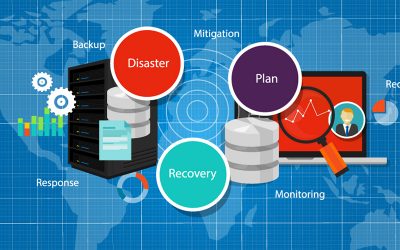Explore Our Explore the Evolution of Our Journey
Blog’s Archives
Scroll Down
Cybersecurity Risks and Preventive Action
Even with so much information available about how to protect your network and business from data breaches and cyber attacks, a surprising number of businesses aren’t prepared. Read on to learn about how to make your company an exception.
Consider Software as a Service (SaaS) as Part of Your Business Model
Imagine if your business had a cost-effective and flexible way of accessing data, applications, and unified communications, without the maintenance and management of on-premise equipment. Read on to learn more about benefits and considerations of this service delivery model.
How Much Downtime Can You Survive Without a Business Continuity and Disaster Recovery Plan?
With disasters–natural and manmade–in the news, preparedness in the form of a business continuity plan is vital. Disaster recovery, or the ability of a business to continue running during and after a disaster, is a key part of business continuity. Read on to learn more about developing a plan to keep your business operating even when things go wrong.
The Importance of a Business Continuity Plan
With some parts of the country heading into tornado season, and with natural and man-made disasters a possibility anywhere, there’s no time like now to consider how to keep your business running in the event of a flood, fire, earthquake, or even a cyber attack. A Business Continuity (BC) plan keeps your business running both during and after a disaster, minimizing downtime and the resulting loss of revenue and reputation. Read on to learn more about what such a plan can mean for your business.
Keep Your Network in Compliance, and Healthy Too
A company’s network is the backbone of its IT infrastructure, depended upon for connection to customers, potential customers, vendors and employees, as well as public and private cloud infrastructure. Not only that, your network’s health is one of your best defenses against cyber threats. However, to stay healthy and in compliance with standards and regulations, you need to be proactive. Read on to find out how to keep your network in good health and compliance.
Is the Public Cloud Right for Your Business?
Migration to the cloud has become more common over the years, with more and more companies moving to the Cloud each day. Benefits of the Cloud extend to many if not all business systems—Communication and Collaboration, Email, file sharing and data storage to name a few. Read on to learn more about how companies, especially small to medium-sized businesses, are using the public cloud for their operations.
Building a Solid Security Foundation in the Cloud
With more and more businesses putting their data in the Cloud, most agree the benefits of doing so outweigh the risks. However, there are still risks to consider, both before and after selecting a Cloud Service Provider. Read on to find out about these as well as to learn how to manage security in the Cloud.
Planning for Disaster Recovery
We hear in the news every day about natural disasters such as fires, floods, storms and even earthquakes, and know the damage they cause. But what about the potential consequences for your business? What if your business stays closed for a period of time, and loses revenue because your information systems are unavailable? Or if a cyberattack occurs that results in a data breach that compromises your business’s reputation? Read on to learn more about how to make a disaster recovery and business continuity plan.
Keeping Your Network Secure
A network is only as strong as its weakest link, and if that weakest link is your security, that can compromise the revenue and the reputation of your business. Attacks just from ransomware have increased over the years, by 200% between 2015 and 2016 alone.
Keeping Network Expenses in Check
Your network is the backbone of your technology infrastructure, enabling your business to run smoothly. But are you using it in the most cost-effective manner, getting the most for your technology budget? Read on to find out more about how to keep network expenses in check.
Is Your Network Ready for Business?
Your network is under continuous pressure to keep up with the growth of your business. Broadband networks providing instant connectivity are a core requirement for most businesses. Your network needs to provide fast access to Cloud Services including Email, Online Backup, Unified Communications, Call Center and other applications.
Aim for the Cloud
The time may be right for your business to move to the Cloud. With its many advantages, including cost savings, security and flexibility, cloud computing also gives businesses a competitive advantage, allowing employees to work any time, anywhere. According to an article by Forbes.












